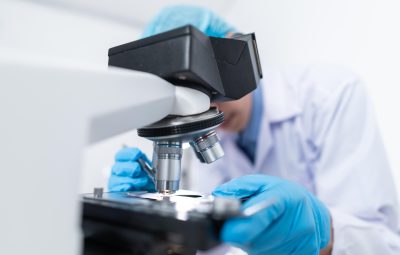At the intersection of human health and wellness sits a plethora of conditions that can significantly impact an individual’s weight. For those battling with weight loss, the quest for solutions often leads to a complex area of medical intervention — one that’s increasingly turning to the hormone HHC (Humanin) for potential help. In this exploration, we uncover the fascinating link between HHC and appetite simulation, shedding light on how this can be a promising aid for conditions that lead to weight loss.
The Silent Struggle of Health-Related Weight Loss
Weight loss is a common narrative in the realm of health. Many conditions — such as cancer, HIV/AIDS, gastrointestinal disorders, and depression — can lead to involuntary weight loss, which is often a sign of more severe underlying health issues. However, the spotlight rarely falls on the silent struggle of those who are involuntarily shedding pounds due to these conditions. Individuals grappling with such challenges face a double-edged sword; they must manage the symptoms of their illness, while also mitigating the impacts of weight loss, which can further exacerbate their health.
Understanding the factors that lead to weight loss in these conditions is critical. It is often a complex interplay of reduced calorie intake due to various symptoms, increased metabolic demands, chronic inflammation, and changes in taste sensation. In such cases, the interventions need to be multifaceted, addressing not just the appetite but also the underlying health issues.
HHC: The Hormone Offering Hope
Humanin, encoded by the HN gene, is a peptide in the human body that is linked to several key processes, including cell survival and inflammation. Recent research has kindled interest in HHC due to its potential role in appetite regulation. This hormone appears to exhibit an appetite-stimulating effect, which is particularly promising for individuals who face weight loss challenges.
In conditions like cancer, where treatment and the disease itself can lead to decreased appetite and, subsequently, weight loss, substances that can stimulate the desire to eat play a crucial role. HHC, with its preliminary findings indicating a positive effect in stimulating the appetite, offers a glimmer of hope to those navigating through the complex web of symptoms that often accompany severe illnesses.
The Road to Therapeutic Solutions
The application of HHC as a therapeutic intervention is still in its nascent stages. Clinical trials are required to establish its efficacy and safety profile. Nevertheless, the discovery of HHC’s potential to stimulate the appetite presents a new avenue for medical interventions that can address the weight loss associated with various health conditions.
The challenge now lies in harnessing this hormone’s potential without triggering off-target effects or interactions with existing medications. The future may see the development of pharmaceuticals that leverage the appetite-stimulating properties of HHC, offering patients a more comfortable path through their treatment regimens.
A Holistic Approach to Weight Loss Intervention
While HHC may become a game-changer for certain conditions leading to weight loss, a holistic approach remains crucial. Health care providers continue to advocate for a treatment model that encompasses both the underlying health issues and the management of associated symptoms. Nutritional support, psychological care, and the judicious use of appetite stimulators are all important components in helping individuals maintain a healthy weight as they battle their illnesses.
The future holds the potential for personalized medicine, where interventions like HHC can be tailored to the individual’s needs, ensuring optimal health outcomes. For now, researchers and health care experts will continue to explore the role of HHC in appetite stimulation, holding out hope for a brighter, healthier tomorrow for those who face the challenge of involuntary weight loss.







